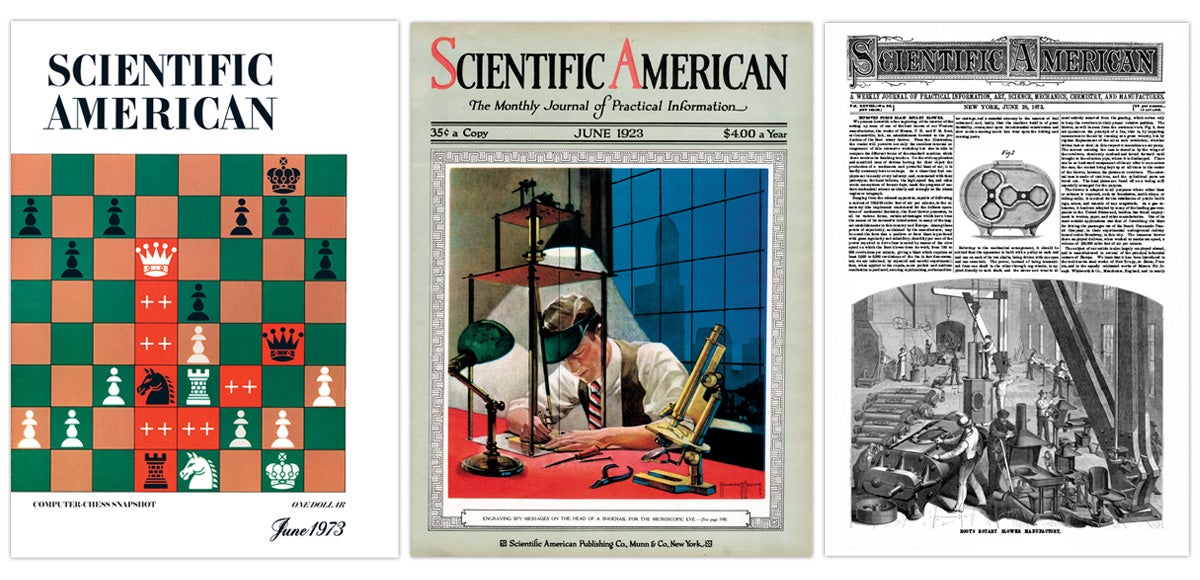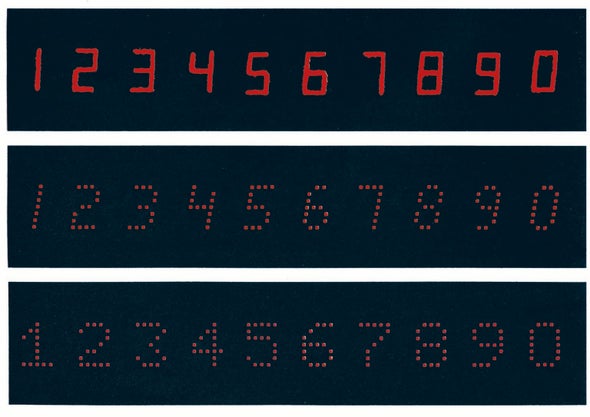1973
John Keats, Poet and Surgeon
“Poet John Keats died tragically early, in 1821, at the age of 25, of tuberculosis. But few people are aware that he crowded two careers into his brief life: he studied medicine and was trained in surgery for as many years as he wrote poetry. Even people who know of Keats's early training have assumed that he was pushed into medicine against his will, resented it and left it as soon as possible. Not so, according to Robert Gittings, an English biographer of Keats. The poet picked a medical career on his own, worked hard at a sound training program and did well, and had actually qualified as a general practitioner when he gave up medicine to devote the rest of his life (four years, as it turned out) to the joys and pain of writing.”
Computer Chess Champ
“It has now been 24 years since Claude Shannon outlined how a computer could play chess. Last August, while Bobby Fischer was winning the world chess title from Boris Spassky in Iceland, several computers were quietly contending in Boston for the U.S. computer chess championship. The winning machine, a Control Data Corporation 6400, was not actually present; its moves were relayed from Northwestern University in Evanston, Ill., where its program, known as Chess 3.5, had been written. The program is fundamentally different from all previous programs in that it can take advice from a master. Writing in Scientific American in February, 1950, Shannon explained why he thought the chess-playing problem merited attention: ‘The problem is sharply defined, both in the allowed operations (the moves of chess) and in the ultimate goal (checkmate). It is neither so simple as to be trivial nor too difficult for satisfactory solution.”
1923
Alcohol as Fuel, Not Drink
“Before prohibition the per capita consumption of gasoline and alcoholic beverages was about the same, 20 gallons a year. Now consumption of alcohol is theoretically zero, while gasoline has risen to 77 gallons. However, we may live to see these ratios reversed, as people get accustomed to regard alcohol as fuel instead of as food, and the vexatious restrictions that have been imposed upon it for the last 500 years may be removed. When that day comes the Government will be urging people to set up home stills instead of confiscating them, and this will enable spoiled grain, unsalable fruit, sawdust and all sorts of wasted stuff to be distilled into fuel on the spot.”
H. G. Wells on Scientific American
“H. G. Wells, in an article entitled ‘What Everyone Should Read' appearing in the American Magazine, has a kind word for us. The great British historian and novelist says, in part: ‘Everyone, I think, should read such a weekly newspaper as Nature, of London, within its range the most honest and wonderful newspaper in the world, or the Scientific American, to keep in touch with the ever-advancing boundaries of human knowledge and achievement. If there are people who cannot read such periodicals, then it is high time the schools that produce such people were looked into and shaken up to a higher level.”
1873
Private Bathing for Birds
“The shyness of birds in performing their ablutions is well known, but no inventor has applied their powers on behalf of the feathered tribe, and they have been obliged to wash themselves in public. Cage birds have especially suffered. But G. T. Peters of Jersey City, N.J., has lately patented a bath tub for birds, in which a hood covers the water dish. The entrance is on one end only, and birdy creeps therein, as into a diminutive bathroom, to enjoy a swim without spattering the cage, in water not soiled by matter falling from the perches.”



